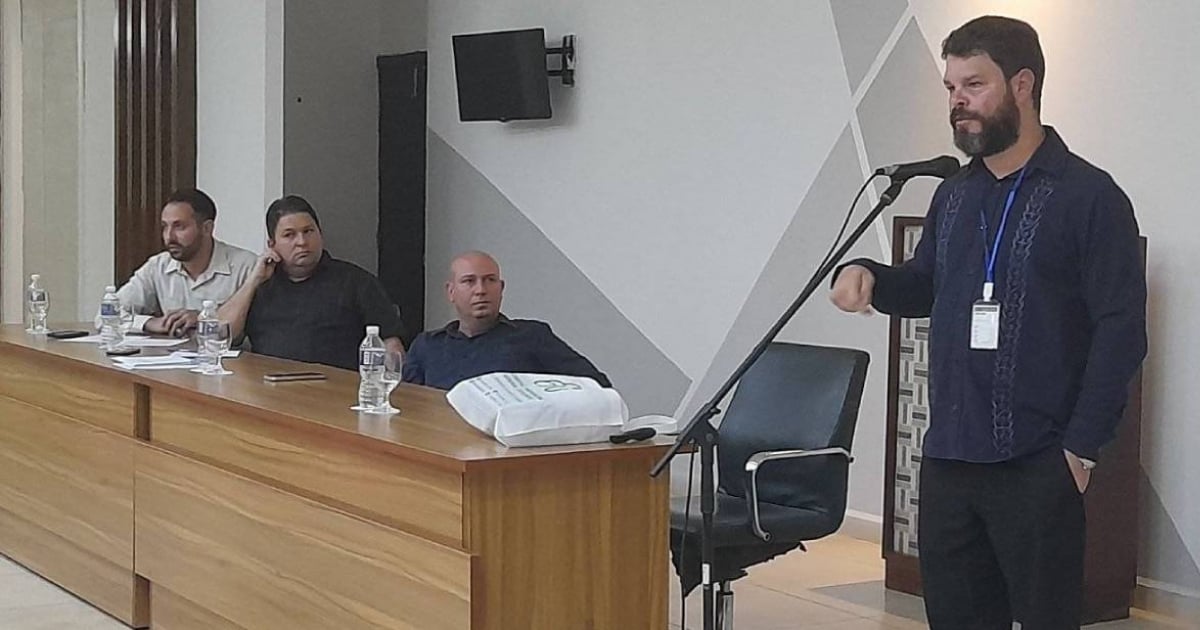
Fidel Antonio Castro Smirnov, grandson of the late Fidel Castro, made a call this weekend to promote a "medical revolution" in Cuba.
At the closing of the I Scientific Convention on Health, Society, and Sustainable Development, Castro delivered a keynote lecture titled "Nanotechnology and Nuclear Sciences in the Medicine of the Future."
The event took place at the "Dr. Antonio Luaces Iraola" General Provincial Teaching Hospital in Ciego de Ávila. The academic emphasized the need for Cuba to adopt what he refers to as P4 Medicine (predictive, preventive, personalized, and participatory).
Castro Smirnov urged Cuban scientists to conduct more research on artificial intelligence, machine learning, and nanotechnology, in order to defend research sovereignty through the creation of patents and proprietary products that would enable the government to generate income for the national economy.
Her statements clash with the reality of Cuba's Public Health System, which is facing one of the worst crises in its history.
While Castro Smirnov advocates for cutting-edge technologies, hospitals in the country lack basic resources such as medications, gloves, dressings, and sterilized materials.
This lack of supplies jeopardizes the lives of both patients and healthcare professionals, who are forced to work under precarious conditions and with recycled materials, putting themselves at risk of serious infections.
In Cuba, patients are required to bring even the sutures for their surgeries to the hospital. The conditions are so dire that doctors are leaving their jobs because they cannot provide quality services and feel overwhelmed by the situation.
In a country where public health is on the brink of collapse and treatable diseases are claiming human lives, aspirations for technological innovation are disconnected from the immediate needs of a population struggling to survive.
The regime insists on portraying Cuba as a "medical powerhouse," but the reality reveals a healthcare system on the brink, lacking the minimum conditions necessary to ensure basic medical care.
Castro Smirnov's speech, cited by ACN, highlights a significant gap between the futuristic goals promoted by Cuba's scientific and political elites and the daily realities faced by millions of citizens who are enduring the consequences of a crisis-stricken system.
The true "medical revolution" that the country needs may not lie in advanced concepts and dreams of using nanotechnology funded by public money, but rather in addressing the fundamental shortages that currently harm the quality of life of Cubans, who don’t even have aspirin available in pharmacies.
Filed under: